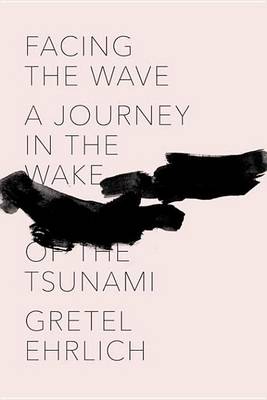
Beth C.
Facing the Wave details just how so many dealt with the aftermath, as well as the stories of those who lived through it. The strength, bravery and resilience of so many are just as inspiring as the tsunami was horrifying. Gretel Ehrlich alternates between the strengths of poetry and beautiful writing and the strengths of facts to tell not just a story of the aftermath, but the story of the Japanese people as a whole. Those who risked their lives to help others, those who continue to risk their lives to help abandoned animals in the no/go zone, and those who simply keep putting one foot in front of the other in the face of overwhelming odds. The priests who walked for miles and miles to pray, the geisha who finally passed on her last remembered song, and the fishermen who lost it all. All of these stories, surrounded by a landscape that is bleak and bloated with the dead, a government who is practicing a cover-up of epic proportions, and entire areas that shifted over and down, not by inches, but by several FEET. And finally, the over-riding shadow of the Fukushima Daiichi nuclear plant and the inescapable radiation that poisoned the air, the land, and even the sea from which so many draw sustenance and their livelihoods.
Facing the Wave is a book of heartbreaking beauty and absolute cruelty. It is best read in smaller portions, as it is all too easy to get overwhelmed. But far from being a book of horrors alone, it is also a book of the strength, the love, and even the happiness and humor of the Japanese people. The beauty of much of the writing had me underlining passages, as I wanted to be able to go back and read them over again. There is a spare beauty to much of the poetry included within the book, and it fits the narrative well.
This is a book that I'm glad I took the time to read. It's not a long book, but it is emotional, just by the very nature of what it covers. But it gives hope and strength, and that alone is always worthwhile.
